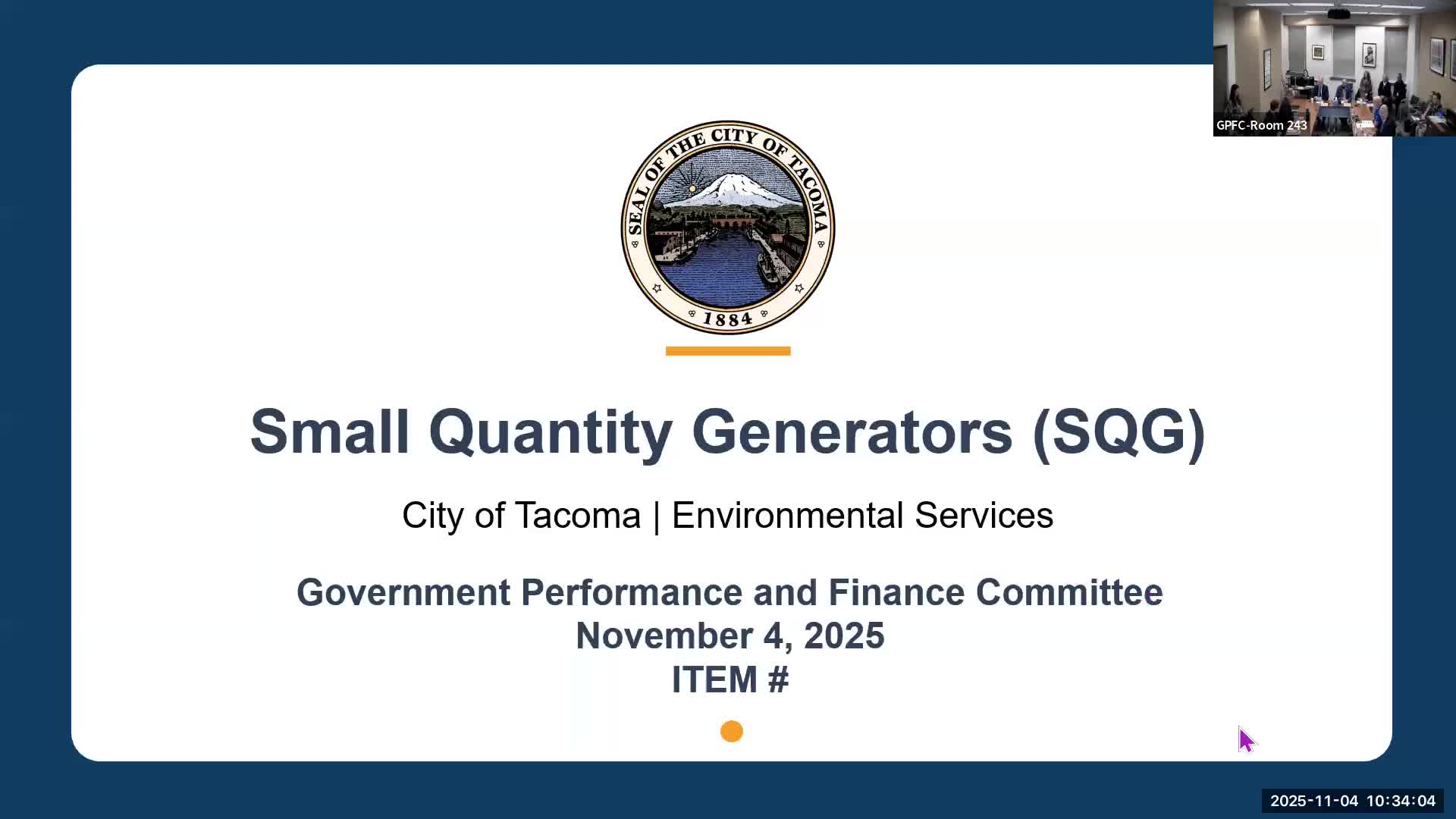Tacoma moves to pilot hazardous-waste services for small businesses; code changes forwarded to council
Get AI-powered insights, summaries, and transcripts
Subscribe
Summary
Environmental Services proposed municipal-code revisions to let the city run a pilot accepting hazardous materials from small quantity generators (SQGs) and to set rates for that service. The committee supported forwarding the code changes to council and asked staff for operational details on worker safety, fees and enforcement.
Environmental Services told the Government Performance and Finance Committee on Nov. 4 that the city will seek authority to run a pilot program to receive and charge for hazardous materials from small quantity generators (SQGs), such as small auto shops and other commercial businesses that produce limited amounts of hazardous waste.
Shane Pettit, assistant division manager for Environmental Services, explained that Tacoma's household hazardous waste (HHW) facility is permitted to accept materials only from residents and that the private-market options that previously served SQGs have diminished. "Small quantity generators' are businesses that produce 220 pounds or less per month of hazardous materials," Alex Reynolds, the rates and budget analyst, told the committee while describing the service gap.
Staff proposed two municipal-code revisions: one to grant the Environmental Services director authority to implement hazardous-waste pilot projects and establish or adjust disposal rates, and a second to add disposal-rate criteria to the municipal code and allow rate adjustments up to four times per year with 30 days public notice. The pilot was funded in the 2025-26 biennial budget and staff said about $200,000 is available to stand up the program and conduct a targeted outreach and operational-testing phase.
Under the proposed plan, staff will conduct outreach to a selection of Tacoma SQGs to inventory material types and will accept materials free of charge during an initial testing phase while staff gathers operational cost data. Staff will then publish recommended rates (staff said publication would occur prior to the next phase) and proceed to a later phase in which the city accepts and charges for SQG materials. Staff emphasized worker safety, regulatory compliance and coordination with the Pierce County Health Department and source-control programs as priorities before the city expands acceptance.
Committee members asked how the city will protect workers, whether enforcement will be complaint-driven or proactive, what the fees will be, and how the program will relate to Pierce County businesses. Staff said safety protocols and regulatory compliance plans will be developed during the pilot, fees will be set after operational costs are known (staff emphasized the goal of providing a more affordable option than private flat-rate services), and the pilot will initially focus on Tacoma businesses. Staff said they are coordinating with Pierce County, which currently funds residential HHW services under an interlocal agreement, and that any expansion beyond Tacoma would require cost-recovery arrangements.
A committee member moved to forward the proposed municipal-code amendments enabling the SQG pilot to the City Council for consideration; the motion was seconded and approved by voice vote. Committee members asked staff to return with additional operational details, including worker-safety measures, a proposed fee schedule after cost analysis, and enforcement plans.
Meeting context: the code changes would allow Environmental Services to run and price a pilot that addresses a known gap in SQG hazardous-material disposal. The committee's action forwards the amendments to council for legislative consideration; final adoption and rate-setting will follow after the operational and fiscal analysis completed during the pilot.
